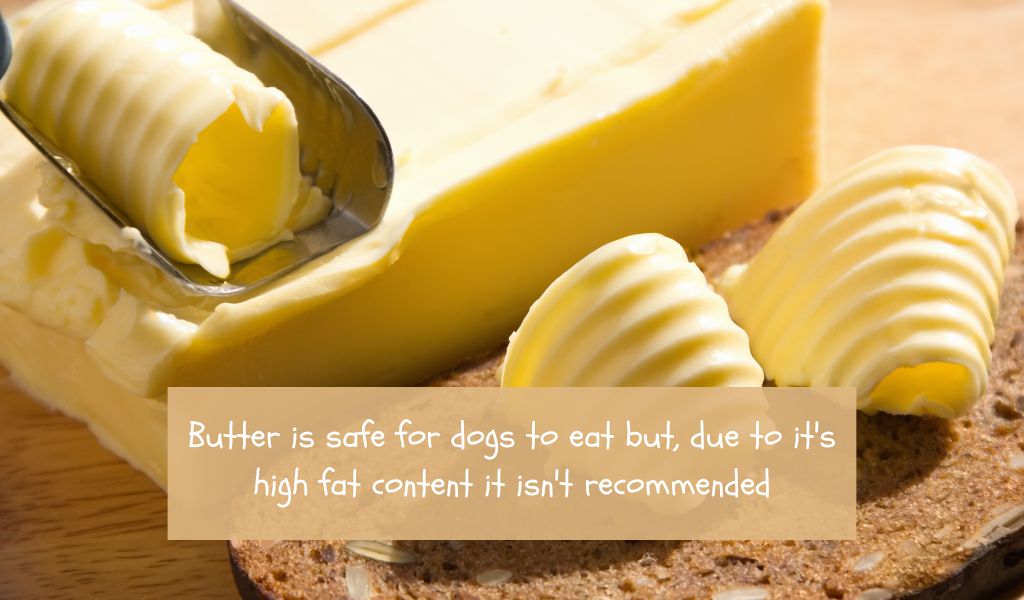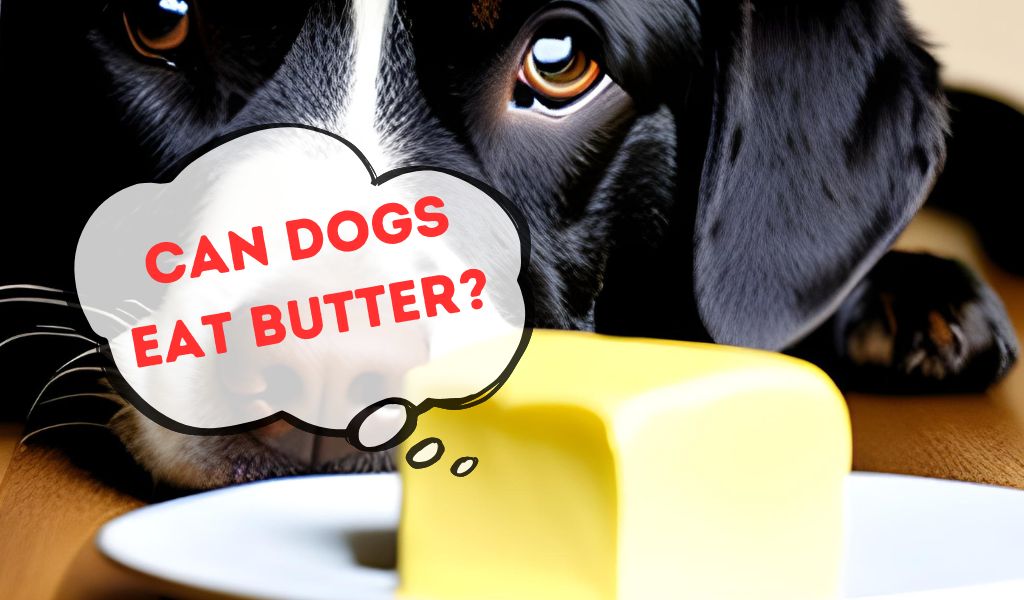Butter is a staple in many households and is used in a variety of recipes, from baking to cooking.
While it may be safe for humans to consume, many pet owners are curious about whether it is safe for their dogs. So, can dogs eat butter? Let’s take a closer look.
Dogs can eat butter, but it is not recommended to feed it to them regularly due to its high-fat content, which can lead to obesity, pancreatitis, and other health issues. Small amounts of butter added to their food or given as an occasional treat can be safe.
What Is Butter?
Butter is a dairy product made from churning cream or milk to separate the butterfat from the buttermilk.
It is a high-fat food and is commonly used in cooking, baking, and as a spread.
Is Butter Safe for Dogs?
While butter is not toxic to dogs, it is not recommended to feed it to them regularly.
Butter is high in fat and calories and can lead to obesity, pancreatitis, and other health issues if consumed in large amounts.

Health Risks of Feeding Butter to Dogs
Obesity
Butter is high in fat and calories, and excessive consumption can lead to weight gain and obesity in dogs.
Obesity can increase the risk of other health issues such as diabetes, joint problems, and heart disease.
Pancreatitis
Pancreatitis is a condition that occurs when the pancreas becomes inflamed.
Dogs with pancreatitis often experience vomiting, diarrhea, abdominal pain, and decreased appetite.
High-fat foods such as butter can trigger pancreatitis in dogs, and it can be a life-threatening condition if left untreated.
Gastrointestinal Upset
Butter is high in fat, which can cause gastrointestinal upset in dogs.
Symptoms of gastrointestinal upset include vomiting, diarrhea, and abdominal pain.
Choking Hazard
Butter is a solid at room temperature, and feeding it to dogs in large amounts can pose a choking hazard.
Dogs that eat large amounts of butter may also experience difficulty swallowing, which can lead to choking.
When Is Butter Safe for Dogs to Eat?
Butter can be safe for dogs to eat in moderation and as an occasional treat.
Small amounts of butter added to their food or given as a treat can be a way to add flavour and provide some extra calories.
However, it is important to limit the amount of butter fed to dogs and to monitor for any signs of gastrointestinal upset or other health issues.
What Are Some Safe Alternatives to Butter for Dogs?
There are many safe and healthy alternatives to butter for dogs, including:
Peanut butter (unsalted and free of xylitol)
Coconut oil
Olive oil
Lean meats (such as chicken or turkey)
Fruits and vegetables (such as apples, bananas, and green beans)
FAQs
Can dogs eat margarine instead of butter?
Margarine is not recommended for dogs as it can contain harmful ingredients such as artificial sweeteners and trans fats.
Can butter cause diarrhea in dogs?
Yes, butter is high in fat and can cause gastrointestinal upset in dogs, including diarrhea.
Can dogs eat clarified butter (ghee)?
Clarified butter (ghee) is still high in fat and calories and should be fed to dogs in moderation.
Can butter be used as a remedy for constipation in dogs?
No, butter should not be used as a remedy for constipation in dogs. Instead, a veterinarian should be consulted
How much butter can I safely feed my dog?
The amount of butter you can safely feed your dog depends on their size, weight, and overall health.
As a general rule, it is recommended to limit butter intake to less than 10% of their daily caloric intake.
Are there any benefits to feeding my dog butter?
While butter is not a necessary component of a dog’s diet, small amounts of butter can be a way to add flavour and provide some extra calories.
However, it is important to monitor the amount of butter fed to your dog and to ensure that it does not lead to any health issues.
Conclusion and final thoughts
While butter is not toxic to dogs, it is not recommended to feed it to them regularly due to the high fat and calorie content.
Feeding butter to dogs in large amounts can lead to obesity, pancreatitis, and other health issues.
However, small amounts of butter added to their food or given as an occasional treat can be safe.
It is important to monitor your dog for any signs of gastrointestinal upset or other health issues and to limit the amount of butter fed to them.

